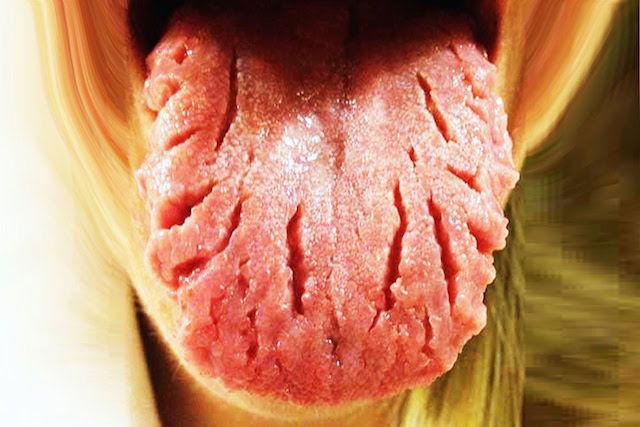A fissured tongue, also known as a cracked tongue, is a benign condition in which there are cracks in the tongue. These small cuts which can make hygiene difficult and lead to the accumulation of food debris on the tongue, causing symptoms such as bad breath and a burning tongue.
Although it has no specific cause, it is most commonly seen in people with Down's syndrome, psoriasis or Sjögren's syndrome.
If you experience a fissured tongue, and if it is difficult to clean or presents with bad breath, you should consult a dentist. Treatment for a fissured tongue usually involves proper ongoing oral hygiene. There are specific brushes and tongue scrapers available that can be used to help clean the tongue.

Main symptoms
The main symptoms of a fissured tongue are:
- Cracks in the tongue
- Accumulation of food debris in the fissures
- Pain or burning in the tongue
- Bad breath
- A change in the color of the tongue
Symptoms are more common when the cracks are deep, which make it more difficult to clean the tongue properly. In this case, the accumulation of food debris in the cracks can encourage microorganisms to multiply and cause inflammation.
Some people may experience pain or burning in the tongue, especially when consuming spicy, salty or acidic foods.
Possible causes
A fissured tongue has no specific cause. It is usually an alteration that is present from birth and is more easily noticed with aging.
A fissured tongue is more common in people with conditions like Down's syndrome, psoriasis, Sjögren's syndrome, Melkersson-Rosenthal syndrome and acromegaly.
Sometimes, people who have a geographic tongue, which is when the taste buds become more prominent and form a type of 'map' on the tongue, can also have a fissured tongue.
Treatment options
Treatment for a fissured tongue usually involves proper oral hygiene, cleaning the surface of the tongue to remove food debris from the fissures and prevent the multiplication of microorganisms, inflammation and bad breath.
When a fissured tongue causes bad breath or is difficult to clean, it is important to consult a dentist, who can recommend specific brushes or tongue scrapers to help with mouth cleaning.
Sometimes, the dentist may also recommend the use of mouthwash to help eliminate excess microorganisms in the mouth.
How to brush your teeth correctly
To brush your teeth properly, you should always brush your teeth after meals and use a suitable tongue scraper to clean your tongue. It is important to use the tongue scraper daily, after brushing your teeth, at least twice a day.
Brushing your teeth correctly reduces the risk of fungi or bacteria accumulating in the cracks, which can lead to candidiasis or gingivitis.






























